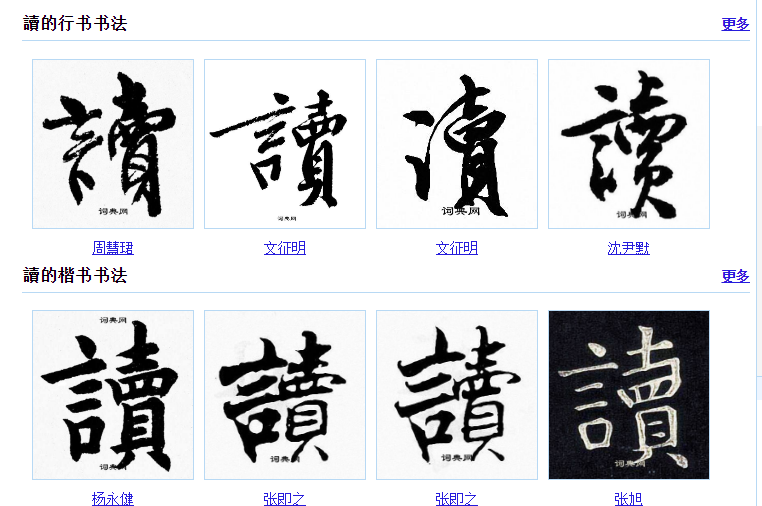(English after/ 英文在次)
关于日前“推广华文理事会” 在年度活动启动仪式上错字 [1][2] (假“渎”[3][4] 以为“读”)一事之我见。
a. 书无定法,书法上洒脱一点,惯常就是像这么写的,看上去不赖 [5] (幸谢 LN 兄查证)。 而且“渎”字三点水作唾沫“潢”飞之态,很符合原字“读”的 意境。
b. 打字的同学别出心裁实践通假字,可惜可能你非文豪,更改回来为妙。
c. 一定要找茬的话,这场小风波倒是证明了“推进理事会”存在的必要性:哪怕是理事会自己都还需要推进呢。
d. 最后,华语原住民们,相信在各位眼中,此区区小事所折射,实乃共睹数十年来所易之大象。(例如:“过去20年来对小一新生……以英语作为主要家庭用语的情况……华族学生从1991年的28%上升到2010年的59%" —— 《乐学善用 2010 母语检讨委员会报告书》15页。[6])
诸君 —— 也包括在下与理事会的同仁 —— 请继续努力。
It is reported on the official launch of the Singapore Speak Mandarin Campaign 2017, a Chinese character "读"(meaning to read) was mistakingly printed as "渎"(meaning ditch, disregard. Identically pronunced as du2 [3][4]) in the campaign slogan. [1] This accedent was confirmed by the campaign organizer Promote Mandarin Council. [2]
My take about this is:
a. Calligraphy-wise it is no bad. Great calligraphers has been writing it this way over the time. [3]
b. The little lovely typlist has followed the traditional greatest writer's way of "phonetic loan character" (通假字). If he is not a great writer, he is to correct it.
c. This accident of itself can be taken no further than serving as an evidance as why the Promoting Council has come into being - even the Council itself needs to be Promoted - hardly to blame on.
d. However, to us, this does again remind about the whole situation in town over the past decades (e.g., "过去20年来对小一新生...以英语作为主要家庭用语的情况都出现上升的趋势。华族学生从1991年的28%上升到2010年的59%" -- 2010 母语检讨委员会报告书). And I call for every native speaker to take this up and carry on.
Reference / 引用
1. Channel 8's write up about the incident. http://www.channel8news.sg/news8/latestnews/20170711-sg-smc-typo/3764564...
2. Official take up from the Council. https://www.facebook.com/SpeakMandarinCampaign/posts/1580850611985201
3. Etymology of character of 渎. http://www.chineseetymology.org/CharacterEtymology.aspx?submitButton1=Etymology&characterInput=渎
4. Character 渎 as in dictionary. https://en.wiktionary.org/wiki/瀆
5. Character 渎 as for calligraphy. http://www.cidianwang.com/shufa/du7534.htm
6. Singapore Ministry of Education 《乐学善用 2010 母语检讨委员会报告书》. https://www.moe.gov.sg/media/press/files/2011/01/mtl-review-report-2010-...


